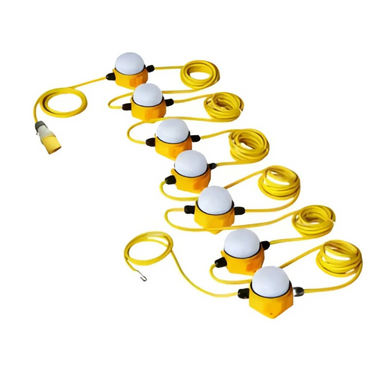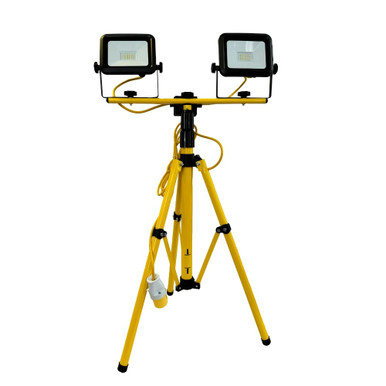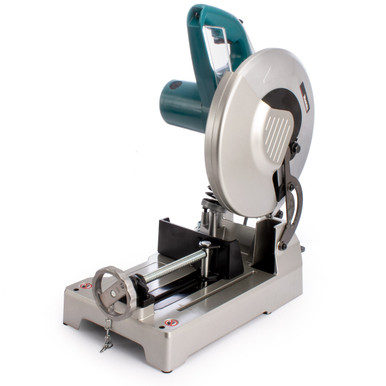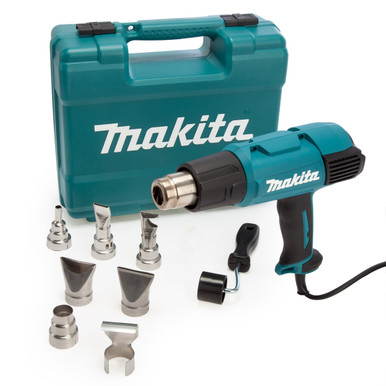What's the Difference Between 110V and 240V Power Tools?
Posted by Katy | Toolstop on 5th Aug 2024
This Toolstop Blog Post has been created to talk you through 110V vs 240V. So what is the difference between 110V and 240V power tools? These tools are designed for totally different purposes, all will be explained in detail! We even discuss 240v to 110v transformers, what they're used for and why you may need one. To distinguish the difference between 110V and 240V tools, keep reading.
When buying corded power tools, you often have the option to choose between 110V (110 volts) and 240V (240 volts). This choice can be confusing, as many people are not aware of the differences and may end up purchasing the wrong one. This Toolstop guide explains the differences between the two voltages and helps you decide which one you should opt for.
Understanding the Difference Between 110V and 240V Tools
- 240V Tools: These tools are compatible with standard domestic 3-pin plug sockets, making them best suited for use around the home and in DIY workshops
- 110V Tools: Designed for heavy-duty site use, 110V tools require a transformer to operate. They are used on construction sites because they offer greater safety in case of accidents, such as a cut cable
The voltage levels mainly depend on the electricity network you are connected to. Here’s a deeper dive into why you might choose one over the other.
Why Use 110V Tools on Job Sites?
110V power tools are standard on construction sites primarily for safety reasons. Here's why:
- Enhanced Safety: If a 110V cable gets damaged, the risk of severe injury is lower compared to 240V. This is because the voltage is lower, reducing the chance of a fatal electric shock
- Regulations: Many construction sites mandate the use of 110V tools to comply with health and safety regulations. Always check with the site manager before starting any work to ensure compliance with site requirements
Why Use 240V Tools for Domestic Use?
240V power tools are ideal for home use for several reasons:
- Ease of Use: They plug directly into standard household outlets, so there is no need for a transformer
- Convenience: When working around the home, you are usually close to an outlet, eliminating the need to carry a heavy transformer
- Availability: Many DIY and home improvement stores carry a wide range of 240V tools, making them easy to find and purchase
The Role of Transformers
Transformers play a crucial role in converting 240V power to 110V for site use. They drop the voltage from 240V to a safer 110V, consisting of 2 x 55V lines. In case of a damaged wire, the voltage is halved, enhancing user safety. If a 240V tool is unavailable for hire, you can use a 110V tool with a transformer to convert the voltage.
Are 240V Tools Less Powerful Than 110V?
A common misconception is that 240V tools are less powerful than 110V tools. However, this is not true. Both 110V and 240V tools provide the same power output. The difference lies in the voltage and its implications for safety and compatibility with electrical systems. The primary difference is related to health and safety regulations rather than performance.
Frequently Asked Questions
Why do we use 110V on construction sites in the UK?
110V is considered safer than 240V for site use, reducing the risk of severe electric shock in case of cable damage.
I only work in domestic properties. Is 110V still the safest option?
For domestic use, 240V is perfectly safe and convenient as you are usually close to an outlet. This eliminates the need for a heavy transformer.
What if I prefer not to deal with cables?
Consider opting for cordless power tools. They offer the convenience of mobility without the need for cables or transformers.
Choosing between 110V and 240V power tools depends on your specific needs and working environment. For construction sites, 110V tools are essential due to safety regulations and reduced risk of electric shock. For home use and DIY projects, 240V tools offer convenience and ease of use.









